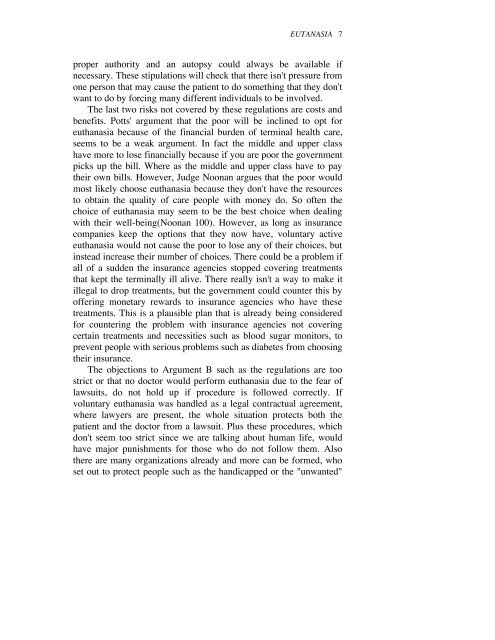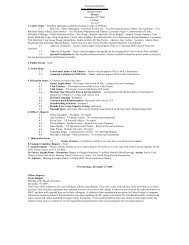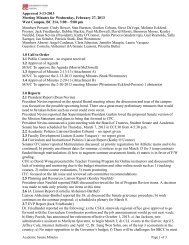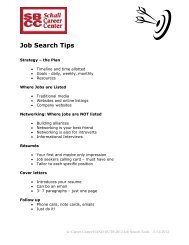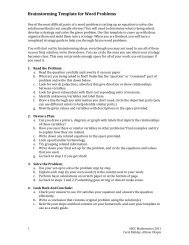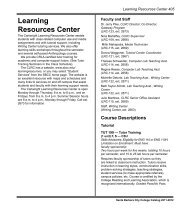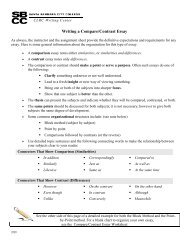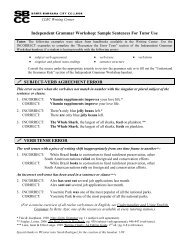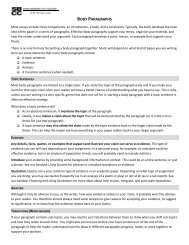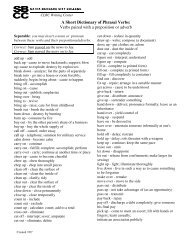Euthanasia Shanda Hastings West Virginia University
Euthanasia Shanda Hastings West Virginia University
Euthanasia Shanda Hastings West Virginia University
You also want an ePaper? Increase the reach of your titles
YUMPU automatically turns print PDFs into web optimized ePapers that Google loves.
EUTANASIA 7<br />
proper authority and an autopsy could always be available if<br />
necessary. These stipulations will check that there isn't pressure from<br />
one person that may cause the patient to do something that they don't<br />
want to do by forcing many different individuals to be involved.<br />
The last two risks not covered by these regulations are costs and<br />
benefits. Potts' argument that the poor will be inclined to opt for<br />
euthanasia because of the financial burden of terminal health care,<br />
seems to be a weak argument. In fact the middle and upper class<br />
have more to lose financially because if you are poor the government<br />
picks up the bill. Where as the middle and upper class have to pay<br />
their own bills. However, Judge Noonan argues that the poor would<br />
most likely choose euthanasia because they don't have the resources<br />
to obtain the quality of care people with money do. So often the<br />
choice of euthanasia may seem to be the best choice when dealing<br />
with their well-being(Noonan 100). However, as long as insurance<br />
companies keep the options that they now have, voluntary active<br />
euthanasia would not cause the poor to lose any of their choices, but<br />
instead increase their number of choices. There could be a problem if<br />
all of a sudden the insurance agencies stopped covering treatments<br />
that kept the terminally ill alive. There really isn't a way to make it<br />
illegal to drop treatments, but the government could counter this by<br />
offering monetary rewards to insurance agencies who have these<br />
treatments. This is a plausible plan that is already being considered<br />
for countering the problem with insurance agencies not covering<br />
certain treatments and necessities such as blood sugar monitors, to<br />
prevent people with serious problems such as diabetes from choosing<br />
their insurance.<br />
The objections to Argument B such as the regulations are too<br />
strict or that no doctor would perform euthanasia due to the fear of<br />
lawsuits, do not hold up if procedure is followed correctly. If<br />
voluntary euthanasia was handled as a legal contractual agreement,<br />
where lawyers are present, the whole situation protects both the<br />
patient and the doctor from a lawsuit. Plus these procedures, which<br />
don't seem too strict since we are talking about human life, would<br />
have major punishments for those who do not follow them. Also<br />
there are many organizations already and more can be formed, who<br />
set out to protect people such as the handicapped or the "unwanted"


